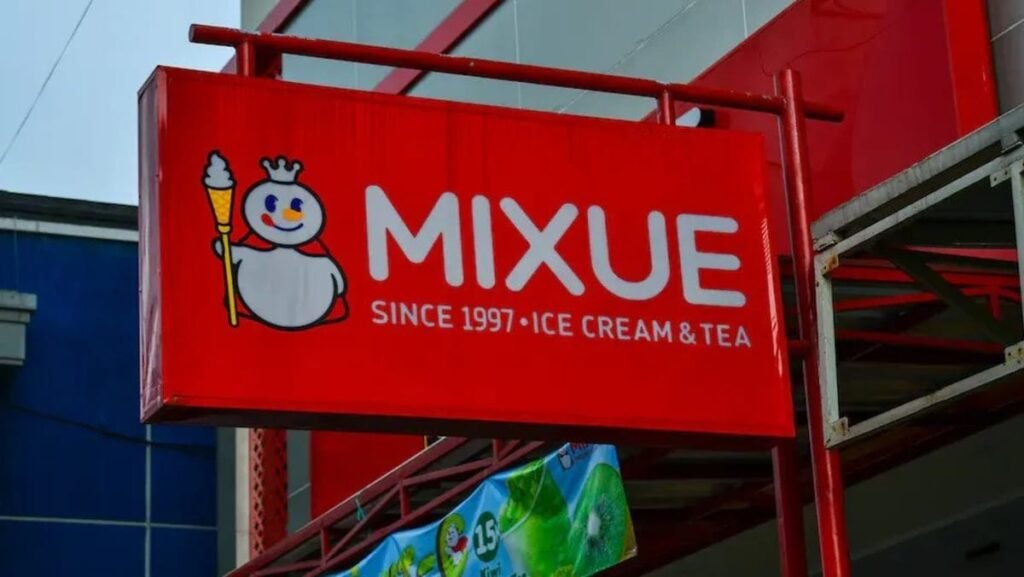Franchisees in local areas compete for franchise locations offered by the master franchise owner. For example, PT Mitra Adiperkasa (MAP) holds the franchise for Starbucks in Indonesia. This approach is more exclusive and tends to target middle and upper-income groups in urban settings.
On the other hand, Chinese food and beverage companies use a low-cost franchise model, enabling them to reach rural regions. This strategy challenges the traditional model, which demands a significant initial investment and often excludes broader participation.
With startup costs below US$40,000, the Mixue franchise is attainable for many aspiring business owners in the area.
Among the new Chinese F&B brands, Mixue is likely the quickest to expand in terms of the number of outlets in Southeast Asia. Established in the late 1990s by Zhang Hongchao, Mixue entered Southeast Asia through Vietnam in 2018 and then Indonesia in 2020.
While its growth in other Southeast Asian nations has been slower, it has surged in countries with lower average incomes and a large youth demographic, particularly Vietnam and Indonesia.
In Indonesia, Mixue’s growth has been remarkable—after just two years, it launched 317 stores, surpassing 2,000 within four years. In Vietnam, around 1,000 stores were opened in five years.
KEY CHALLENGES
Chinese food and beverage companies initially aimed to penetrate developed markets but faced significant challenges. Complicated regulations, strict food safety protocols, high entry costs, and the strong presence of established local and international brands made it difficult for these firms to enter developed markets like Australia, South Korea, and Japan.


